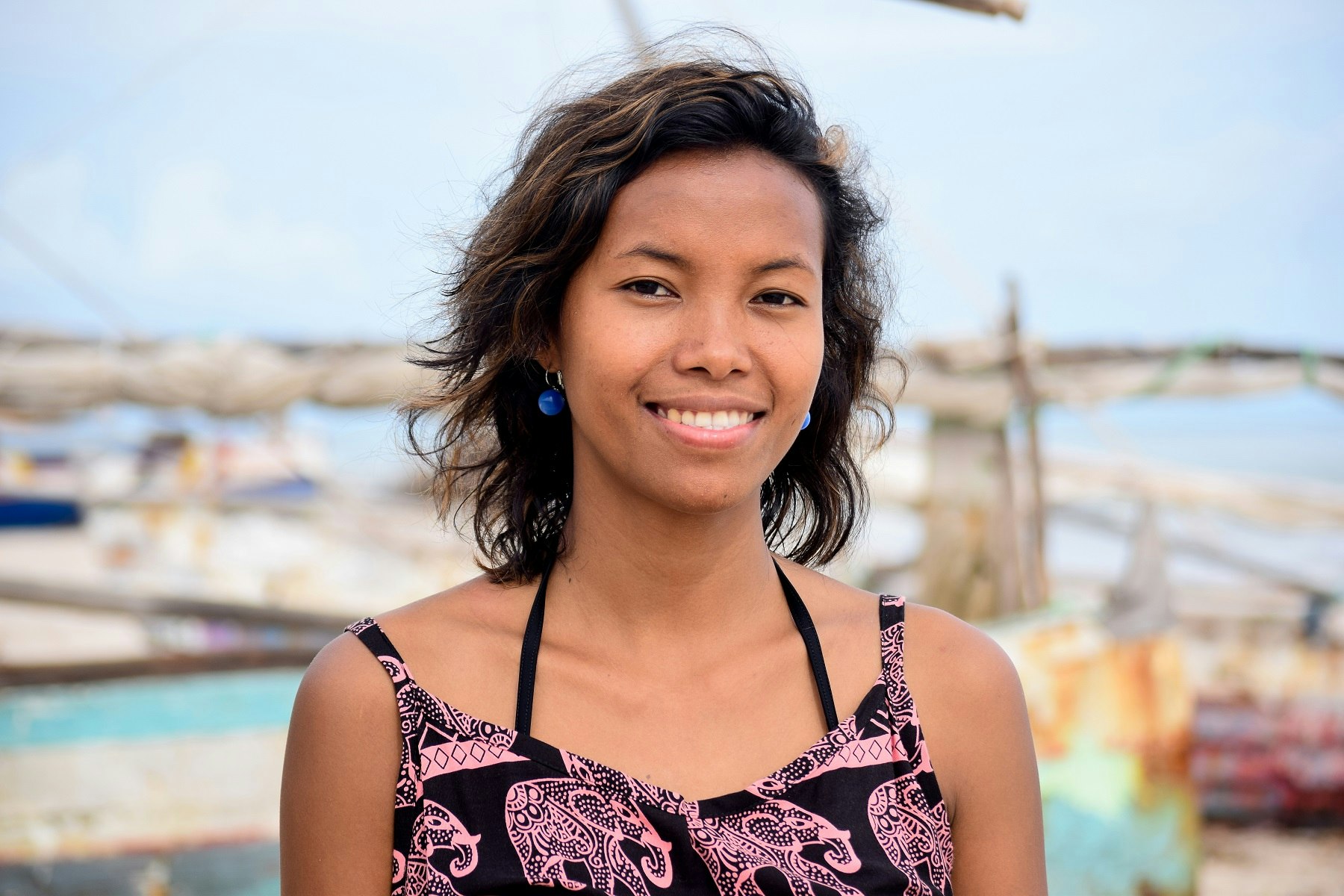ISOLATED COMMUNITIES
While rich in biodiversity, many coastal communities in Madagascar are remote and lacking in basic amenities. Poor infrastructure means fishers struggle to sell their products, and children rarely have access to formal education. However, their intimate knowledge of the sea and their vested interest in its protection makes local communities best placed to guide management of their marine environment.
LOCALLY MANAGED MARINE AREAS
With few safeguards in place, marine resources have been rapidly depleted in recent decades. Under Vatosoa’s coordination, the MIHARI network have taken steps to reverse this trend by connecting over 200 community associations and NGOs along the country’s 5,000km coastline to share best practice and develop management guidelines. Some of the Locally Managed Marine Areas (LMMAs) established within the network have demonstrated that a shift towards more sustainable fishing practices can yield impressive benefits for both people and marine life.
A UNITED VOICE
Vatosoa is giving local fishers a voice. On the political stage, Vatosoa has championed the rights and needs of local fishers and their important role in marine management. In 2017 the network presented their proposal for fisheries policy reform to the Ministry of Fisheries and in 2018 the government made a commitment to work towards reserved areas for smallscale fishers.
VATOSOA’s PROJECT WILL:
- Expand the network to support fishing communities in three new coastal regions in Madagascar.
- Bring together leaders of 40 LMMAs for comprehensive training in the management and governance of their marine resources.
- Work with government to secure legal status for LMMAs including the creation of a reserved area for small-scale fisheries.
- Promote knowledge sharing between the 200 participating community management associations ensuring best practice in marine conservation and sustainable use.
WHY IT MATTERS:
- In Madagascar 500,000 traditional fishers rely on marine biodiversity for livelihoods and food security.
- Almost all of Madagascar’s 18 ethnic groups are represented in the MIHARI network.
- 90% of the species on Madagascar are found nowhere else on earth.
“I feel incredibly privileged to work on behalf of Madagascar’s small-scale fishers and help them to defend their rights at a national scale.”
Image credits: Garth Cripps (fisherwoman, sailboat banner image)
2021 Continuation Funding
£70,000 over two years
The Blue Agora of Madagascar: Channelling Support to Locally Managed Marine Areas
Madagascar is one of the most biodiverse islands in the world but has lost 90% of its natural ecosystems. The drop in productivity of marine ecosystems is directly affecting half a million people, making sustainable resource management indisputably urgent. Madagascar’s government is on board: the President has agreed to triple marine protected areas nationally with a focus on Locally Managed Marine Areas (LMMAs), of which communities along the entire coastline are already seeing the benefits. This is an opportune moment to leverage the wave of momentum and speed up a just transition.
Vatosoa Rakotondrazafy will implement the Blue Agora of Madagascar through the NGO, INDRI. This new programme will foster a productive national dialogue between government, private sector, NGOs, civil society, scientists and donors. Vatosoa will also empower 60 LMMA leaders, 20 young fishing community advocates and 28 fisherwomen to negotiate for better rights, access and pay.
Together, stakeholders will address critical unresolved issues such as the creation of exclusive fishing zones for small-scale fishers, sustainable wildlife management, the fairness of international fishing agreements and the adequacy of financial support. They will form a shared, holistic, and community-centred vision for a future blue economy in Madagascar.




